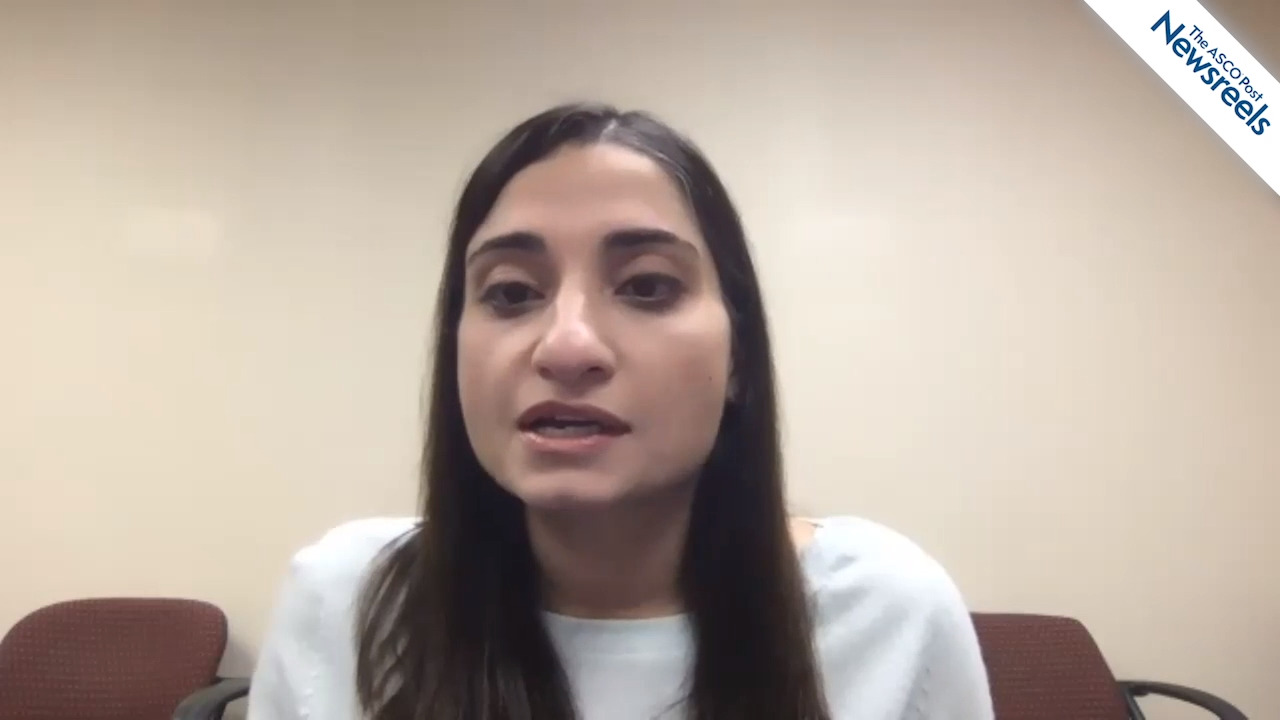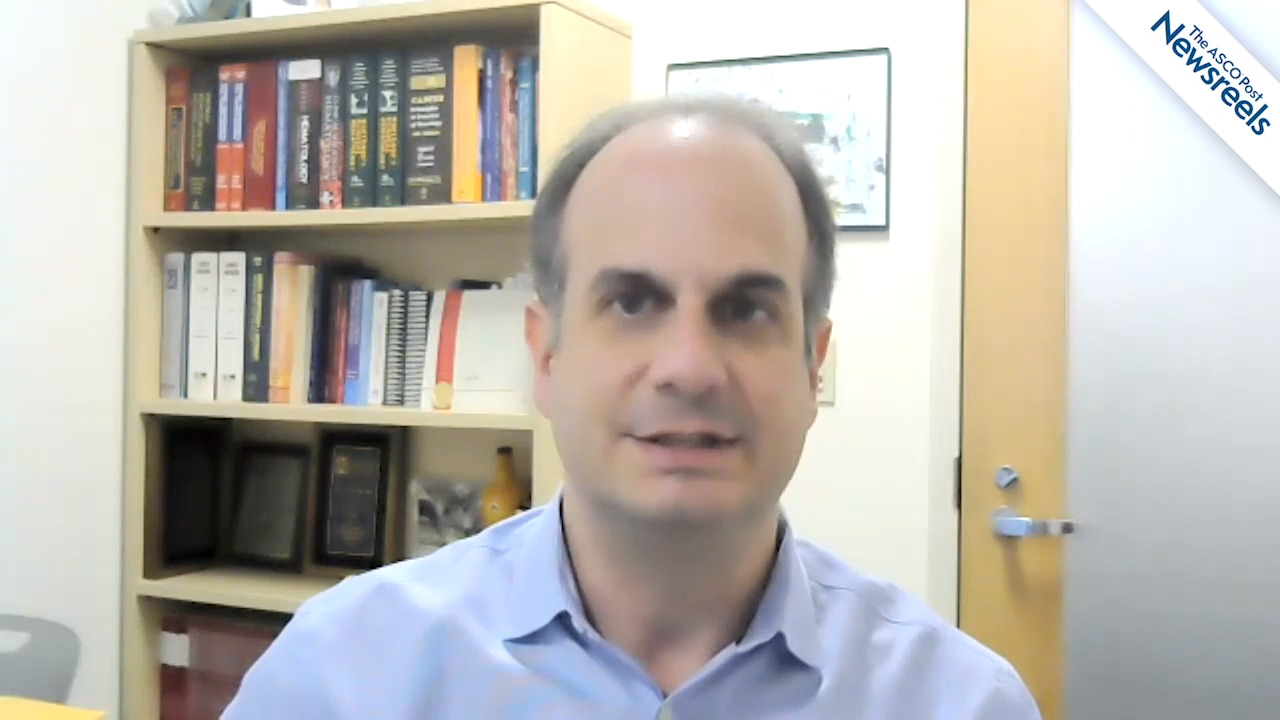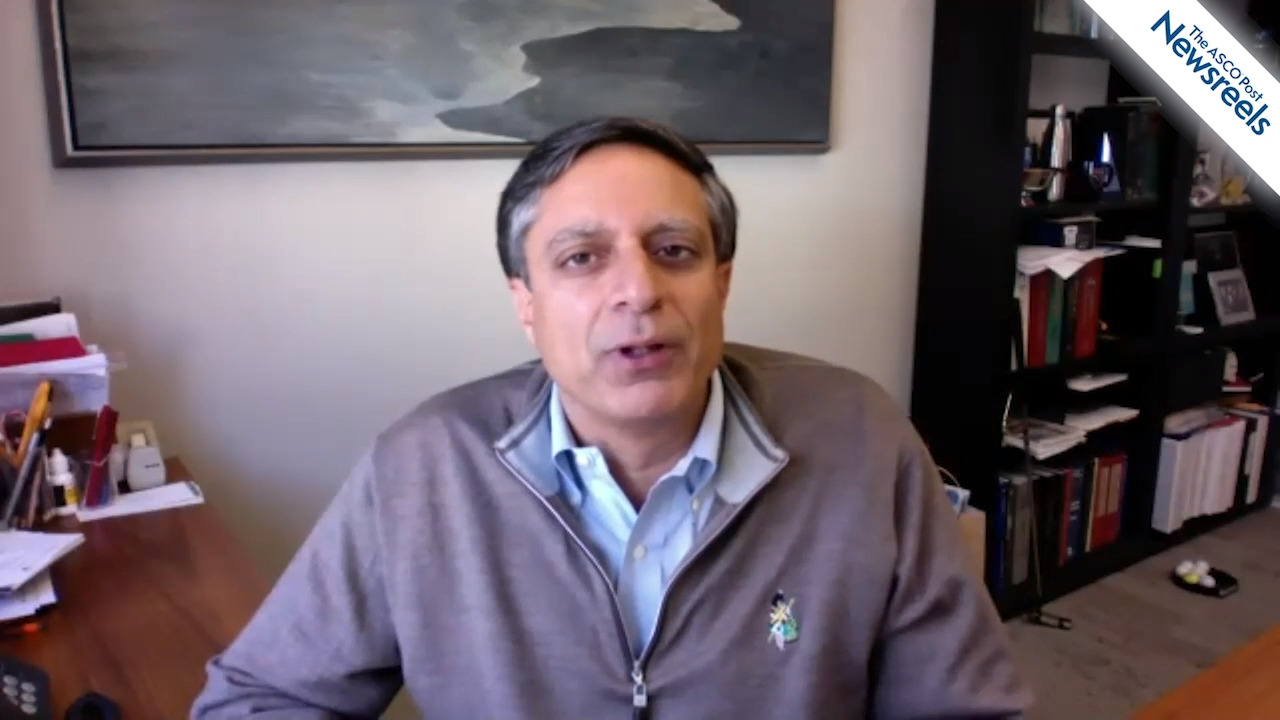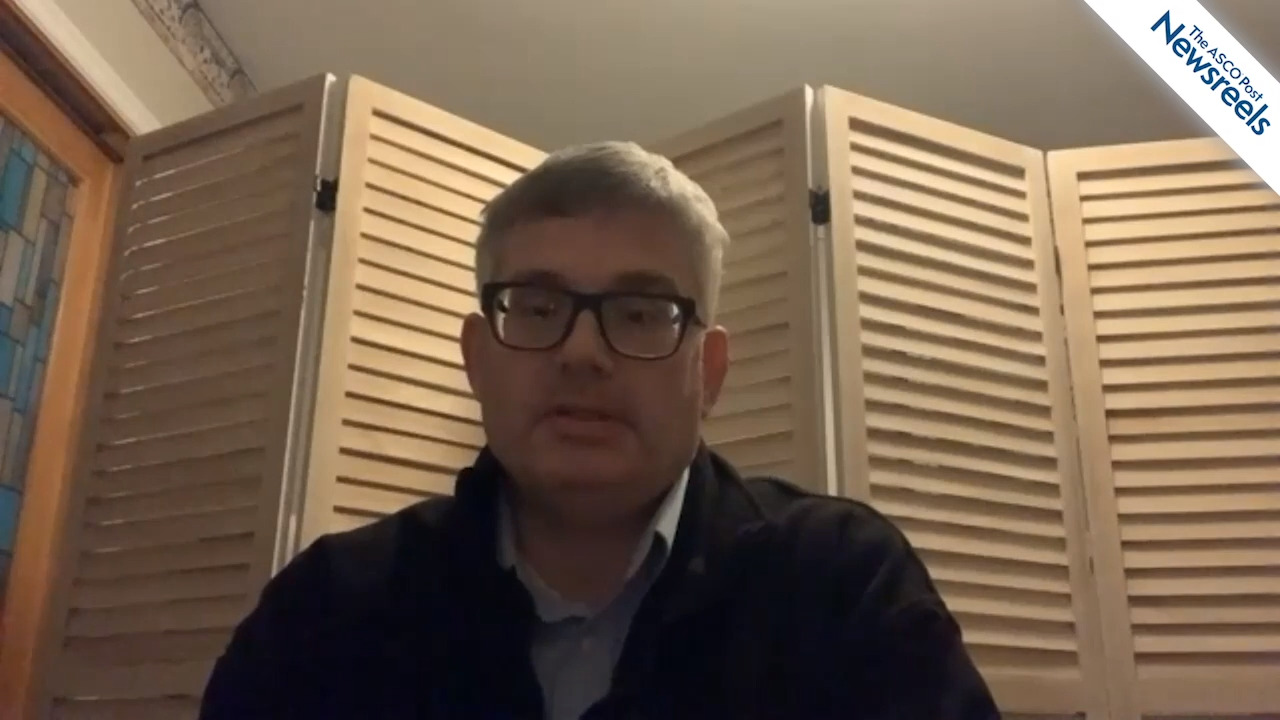Farhad Ravandi, MD, on AML: Novel Combination Therapies for Newly Diagnosed Disease
2020 ASH Annual Meeting & Exposition
Farhad Ravandi, MD, of The University of Texas MD Anderson Cancer Center, offers his expert perspective on key treatment studies in acute myeloid leukemia on the use of gilteritinib, consolidation chemotherapy, venetoclax, cladribine, azacitidine, quizartinib, decitabine, and CPX-351 (Session 616 [Abstracts 24- 29]).
The ASCO Post Staff
Sara Zarnegar-Lumley, MD, of Vanderbilt University Medical Center, discusses an analysis of a large cohort confirming the age-associated prevalence of IDH mutations in patients, across the age spectrum, with acute myeloid leukemia and therapeutic implications. IDH-mutated genes were found to co-occur frequently with other mutations, some of which favorably impact outcomes in patients younger than 60 (Abstract 388).
The ASCO Post Staff
Corey Cutler, MD, MPH, of Dana-Farber Cancer Institute, discusses results from a multicenter trial that compared reduced-intensity allogeneic hematopoietic cell transplantation to hypomethylating therapy or best supportive care in patients aged 50 to 75 with advanced myelodysplastic syndromes (Abstract 75).
The ASCO Post Staff
Sagar Lonial, MD, of the Emory University School of Medicine, summarizes key papers presented in a session he co-moderated on how second-generation CAR T cells can be used to treat patients with multiple myeloma (Session 653).
The ASCO Post Staff
David T. Teachey, MD, of the University of Pennsylvania and Children’s Hospital of Philadelphia, discusses data showing that cranial radiation might be eliminated in most children with T-cell acute lymphoblastic leukemia and that bortezomib may improve survival in children with T-cell lymphoblastic lymphoma (Abstract 266).
The ASCO Post Staff
Jyoti Nangalia, MBBChir, of Wellcome Sanger Institute and the University of Cambridge, discusses how her team used large-scale whole-genome sequencing to precisely time the origins of a blood cancer and measure how it grew. The information could provide opportunities for early diagnosis and intervention (Abstract LBA-1).





